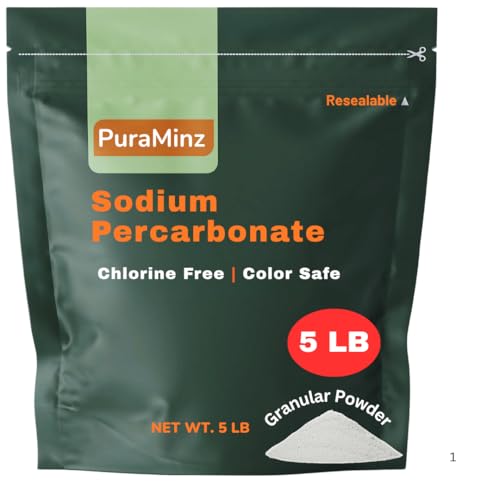If you’re looking to revitalize your outdoor space and give your pavers a fresh, clean look, using chlorine might just be the solution you need. At some point, our outdoor surfaces can accumulate dirt, grime, and even mold, detracting from the beauty of our surroundings. That’s where chlorine comes in as a powerful ally in the battle against stubborn stains and discoloration on pavers.
Understanding the Use of Chlorine for Cleaning Pavers
The Basics of Chlorine as a Cleaning Agent
When it comes to rejuvenating outdoor spaces, chlorine emerges as a trusted ally in restoring the luster of your pavers. Its powerful cleaning properties make it an excellent choice for tackling tough stains, grime, and mold that mar the beauty of your outdoor surfaces.
By harnessing the sanitizing strength of chlorine, we can effectively combat the accumulated dirt that dulls the appearance of pavers over time. From tackling deep-seated grime to addressing stubborn discoloration, chlorine offers a comprehensive solution to revitalize your outdoor areas.
Safety Considerations When Using Chlorine
Safety is paramount when introducing chlorine into your cleaning routine. While chlorine is a potent cleaner, it’s crucial to handle it with care to ensure both effective results and the well-being of your surroundings.
Our approach involves following strict safety protocols, such as wearing protective gear like gloves and masks, diluting chlorine appropriately to avoid damage, and ensuring adequate ventilation during the cleaning process. By prioritizing safety measures, we can harness the full potential of chlorine as a cleaning agent while safeguarding the environment and those around us.
Preparing to Clean Pavers with Chlorine
Gathering the Necessary Supplies
When we prepare to clean pavers with chlorine, there are a few key supplies we need to have on hand to ensure the process goes smoothly. Firstly, we require chlorine bleach, which is a powerful cleaner effective in removing tough stains and mold from pavers. Additionally, we need water to dilute the chlorine bleach for safe and effective use. A stiff-bristled brush or broom will also be essential to scrub the pavers and help lift the dirt and grime.
Protecting Yourself and Your Plants
Before we begin the cleaning process, it’s crucial to prioritize safety. We must wear protective gear such as gloves, goggles, and long sleeves to shield our skin and eyes from the strong chlorine bleach. It’s essential to work in a well-ventilated area to prevent inhaling fumes and ensure proper airflow during the cleaning process.
Moreover, we need to protect our plants surrounding the pavers. Chlorine bleach can be harmful to vegetation, so we should water the plants thoroughly before cleaning to help dilute any potential runoff. We can also cover sensitive plants with plastic sheeting to safeguard them from direct contact with the chlorine solution. By taking these precautions, we can effectively clean the pavers while keeping ourselves and our outdoor greenery safe.
Step-by-Step Guide to Clean Pavers with Chlorine
Mixing the Chlorine Solution
When it comes to revitalizing outdoor spaces and bringing back the luster of your pavers, we know that mixing the chlorine solution correctly is key. To effectively clean your pavers, we recommend creating a mixture of one part chlorine bleach to nine parts water. This balanced solution ensures potent cleaning power without being too harsh on your outdoor surfaces. By following this simple yet crucial step, you can tackle tough stains, grime, and mold effectively.
Applying the Chlorine to the Pavers
Once you’ve prepared the chlorine solution, the next step is applying it to your pavers. Using a sprayer or a watering can, generously coat the surface of the pavers with the chlorine solution. Ensure thorough coverage, especially on areas with heavy staining or mold growth. The chlorine’s potent cleaning properties will start breaking down grime and mold, restoring the beauty of your outdoor space.
Scrubbing and Rinsing Your Pavers
After applying the chlorine solution, it’s time to roll up our sleeves and get scrubbing. Grab a stiff-bristled brush and scrub the pavers to dislodge any lingering dirt or stains. For stubborn areas, you may need to apply a bit more elbow grease. Once you’ve scrubbed the pavers thoroughly, rinse them with clean water. A garden hose or pressure washer can help remove the chlorine residue and reveal the clean, revitalized surface of your pavers.
By following these simple steps, you can effectively clean your pavers with chlorine, bringing new life to your outdoor space and ensuring a fresh, vibrant look for your hardscape.
Pros and Cons of Using Chlorine on Pavers
Effectiveness of Chlorine Against Stains and Algae
When it comes to rejuvenating outdoor spaces, incorporating chlorine for paver cleaning can be highly effective. Chlorine is known for its potent cleaning properties, making it a formidable ally against stubborn stains, grime, and algae growth on pavers. The chemical reaction between chlorine and organic matter helps break down these unsightly elements, restoring the pristine look of the hardscapes. By utilizing chlorine, we ensure a thorough cleaning process that revitalizes outdoor areas, leaving pavers looking fresh and well-maintained.
Potential Downsides and Precautions
Despite its effectiveness, using chlorine on pavers comes with certain considerations and precautions. One primary downside is the potential harm it can cause to surrounding plants and grass if not applied carefully. Chlorine is a strong chemical compound that can adversely affect vegetation, so it’s crucial to take preventive measures to shield greenery from overspray or runoff during the cleaning process. Additionally, proper dilution of chlorine is essential to prevent surface damage and ensure safe usage. We recommend testing the chlorine solution on a small, inconspicuous area of the pavers first to assess its impact and adjust the concentration as needed. Taking these precautions allows us to harness the power of chlorine effectively while minimizing any risks associated with its use on outdoor surfaces.
Alternative Cleaning Solutions for Pavers
Eco-Friendly Options
As landscape designers, we always consider sustainable practices in our work. When it comes to cleaning pavers, there are eco-friendly alternatives to chlorine that can effectively rejuvenate outdoor spaces without harming the environment. One such option is using a vinegar solution. Mixing equal parts of water and white vinegar creates a potent yet safe cleaner that can tackle dirt, grime, and mildew on pavers. The acidity of vinegar helps break down stains while being gentle on the surrounding vegetation.
Another eco-conscious approach is using baking soda as a cleaning agent. By making a paste with baking soda and water, you can create a powerful cleaner that exfoliates stubborn stains on pavers without introducing harsh chemicals into the environment. This natural solution is not only effective but also safe for plants and animals, aligning with our commitment to sustainable landscaping practices.
Commercial Paver Cleaning Products
In our line of work, we understand the value of professional-grade cleaning products for pavers. Commercial cleaners specifically formulated for pavers offer convenience and efficiency in rejuvenating outdoor spaces. These products are designed to remove tough stains, mold, and algae without causing harm to the surrounding vegetation.
When selecting a commercial paver cleaning product, we recommend opting for biodegradable options that are gentle on the environment. Look for cleaners that are phosphate-free and designed to break down naturally, minimizing their impact on ecosystems. By choosing eco-conscious commercial paver cleaning products, we can achieve effective results while upholding our commitment to sustainable landscape design practices.
Conclusion
We’ve explored the benefits of using chlorine to clean pavers, focusing on safety and providing a detailed cleaning guide. We’ve also discussed eco-friendly alternatives like vinegar and baking soda solutions, promoting their effectiveness and environmental advantages. Our article has highlighted the importance of choosing biodegradable products for sustainable landscaping practices. Remember, whether opting for chlorine or eco-friendly options, always prioritize safety and environmental consciousness in your paver cleaning routine. Happy cleaning!












